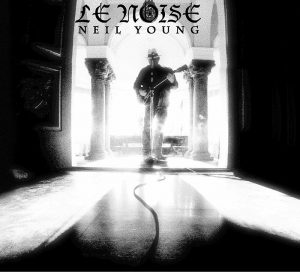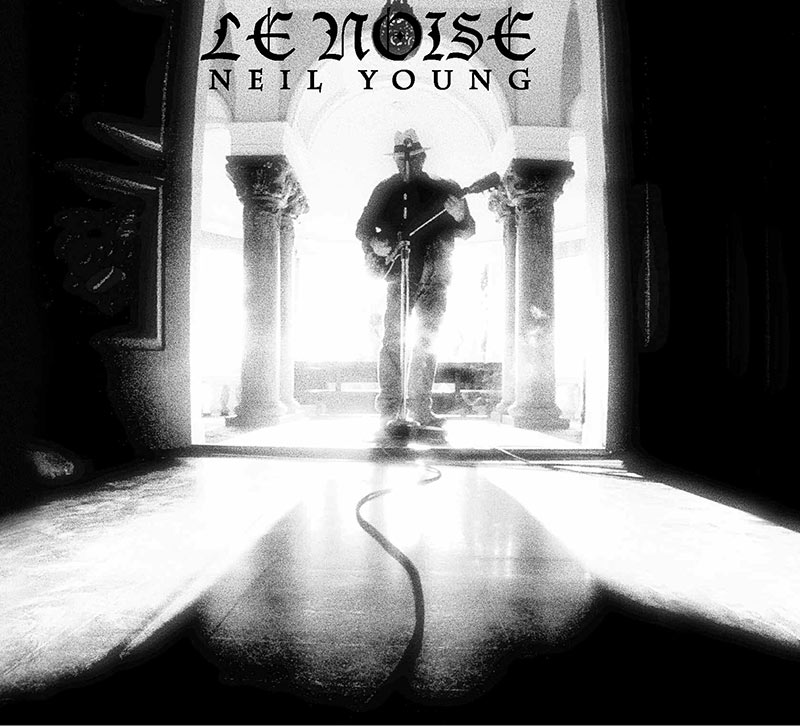by Paul Falardeau (Arts & Life Editor)
 Neil Young is undeniably one of the artists many minds turn to when thinking of the iconic figures of Canada’s musical past. Albums like Heart of Gold, Everybody Knows This is Nowhere and After the Gold Rush, to take a small selection from Young’s prolific library, are the stuff of legend in the Canadian music world.
Neil Young is undeniably one of the artists many minds turn to when thinking of the iconic figures of Canada’s musical past. Albums like Heart of Gold, Everybody Knows This is Nowhere and After the Gold Rush, to take a small selection from Young’s prolific library, are the stuff of legend in the Canadian music world.
One might think that a man, who cut his chops in 1966 Toronto, playing with the Rick James-fronted Mynah Birds, might begin slowing down after well over forty years in the game. Not true. Unlike some – in fact many – of his contemporaries and followers, Young has continued to change and innovate with music; a chameleon of song, Young has taken a journey through folk-rock, country, punk, grunge and electronic music, pioneering about half those genres and inspiring leagues of eager minds along the way. Even during times when Young had dropped from the limelight he was experimenting with new sounds and making amazing gems, like the critically underrated Trans.
Now, like peers Bob Dylan and Robert Plant, Young has risen from the ashes into somewhat of a renaissance with a string of hit albums including the nostalgic folk of Prairie Wind, the raw protest-driven Living with War and the wonky electric-car-guitar jumble of Fork in the Road. On his most recent effort, Le Noise, Young continues to experiment with musical style and sound while continuing to deliver all of his trademark attitude and lyrical prowess.
Despite years of fiddling with different styles, Young has managed to capture and keep something that is uniquely his in each album he releases. That is present here to be sure. “Peaceful Valley” is sung in Young’s trademark tenor, imparting as much sorrow at the death of California’s natural beauty as he did at the death of Kent State students.
On the haunting “Love and War” Young questions the titular themes he has so often plumbed for inspiration. In exploring them once again, he also examines his own motive for using them, he sings, “Said a lot of things that I can’t take back, but I don’t really know if I want them.” The theme of love and war is employed literally as Young’s bread and butter but also metaphorically as Young takes on his toughest critic: himself. The perfectionist in Young may explain why his work has so often taken strange turns and created remarkable sounds, but it also seems to be a constant internal struggle.
The album is far from a downer though. Working solo, serving up these eight tracks with only guitar and vocals, Young still creates a soundscape that is at once discouraging and inviting. This is thanks in no small part to legendary producer Daniel Lanois, who has a heavy hand on the album (Lanois= Le Noise, hmm). “Angry World” quickly breaks into a spacey, effects-driven freak out, and “Hitchhiker,” a wonderful partial memoir, is also soaks in reverb and other studio tricks.
The result of Young and Lanois’ partnership is an album that sounds particularly relevant in the modern music scene. This isn’t just an elder having his last say; this is a talented musician continuing to create fresh and innovative music nearly fifty years into his career. Don’t kid yourself into thinking Neil Young is spent; this disc is a real treat and should be enjoyed by old fans and skeptical hipsters alike. Young’s 32nd studio effort (amidst all the live, compilation and archival albums) sounds as good as his first.


